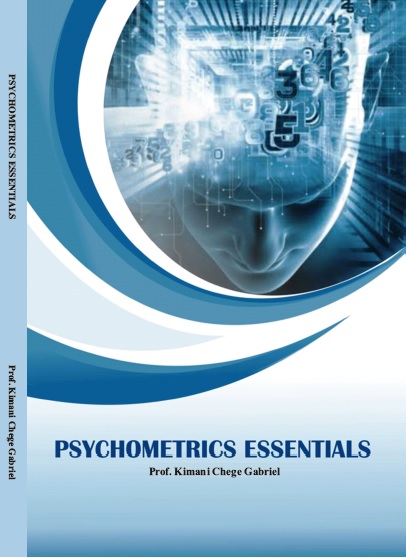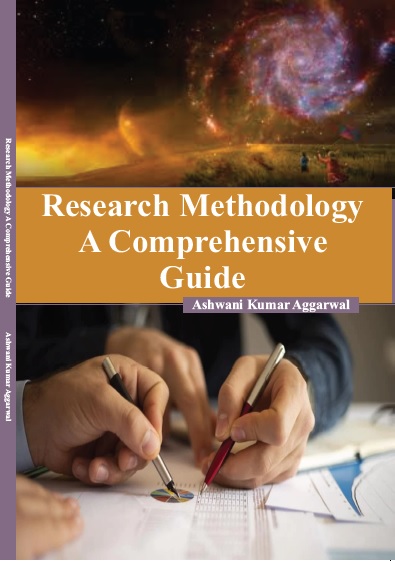SOCIAL SCIENCE AND HUMANITIES

Psychometrics Essentials
by Prof. Kimani Chege Gabriel
ISBN Number : 978 - 93 - 88672 - 38 - 2
Authors Details
| Author Name | Image | About Author |
|---|---|---|
| Prof. Kimani Chege Gabriel |  |
Prof Kimani Chege Gabriel teaches Psychology at Moi University with a specialty bias in
Psychometrics. He holds four university degrees and is a full member of the KPA and KIM.
Prof Kimani has over 15 years' experience in university teaching and clinical practice as a
private practitioner, he has published over 60 (Sixty) papers in refereed journals and coauthored
one other book, apart from attending and presenting papers at numerous local and
international conferences. He has been a Principal Investigator in many studies and has
supervised 5 PhD, 50 master's students and currently supervising others. Some of his unique
skills include clinical diagnosis and management of mental disorders, psychological
proling and forensics, polygraph and psychometric testing as well as stochastic modeling
of behavior. He has held various administrative responsibilities at the university, developed
degree curricula for accreditation by CUE, and is an external examiner for Kenyan and
International universities. Besides, he is a reviewer for scientic and peer reviewed journals
such as the Journal of Psychotherapy and Psychology and the European Scientic Journal.
Prof Kimani has chaired conference committees and participated in proposal writing for
funding at Moi University. He has been a keynote speaker at international conferences and
sits in the technical committee for the International Psychology and Health Conferences
sponsored by El Institute, Chengdu china. He has consulted for various organizations in
mental health and disorders, health promotion, psycho-proling and forensics, applied
behavior analysis and change. |
Book Description
The concept of psychometric testing is no longer new in society, especially in the developing countries. Private and public sector institutions are nding it necessary and prudent to introduce objectivity in organizational processes such as recruitment and selection as well as other psychological measurements. This has created need for expertise in test development, use and decision making. This requires an understanding of the scientic principles of psychometric theory such as those presented by this book. Keeping the above background in view, this book has been written with three clear objectives, i.e., (i) to empower test developers, irrespective of their disciplinary origins, in developing the most appropriate, reliable and valid psychometric devices for measuring psychological constructs; (ii) to enable them to evaluate psychometric tests before using them, and (iii) facilitate understanding of psychometric theory for academic consumption. As regards organization of the book, it consists of eleven chapters that are presented logically and in a systematic manner. Chapter one is an introduction, presenting an overview of psychometrics, its concepts and denitions. Chapter two describes in detail the process of constructing a psychometric test while the concept of validity of psychometric tests has been dealt with in Chapter three. As it were, validity and reliability are inseparable psychometric concepts, which logically places reliability of psychometric tests in chapter four of this book. Chapter ve presents the classical test theory (CTT) while Chapter six has been exclusively devoted to the item response theory (IRT) where detailed coverage of item characteristic curves (ICCs), IRT models, Rasch models and their applications has been done. In Chapter seven, effort has been made to explore the methods of checking the quality of items in objective tests under the Chapter title psychometric item analyses. Factor analysis has been extensively covered in Chapter eight while chapter nine dwells on structural equation modeling including all the mechanics of SEM. The task of task of exploratory data mining has been addressed in Chapter ten which has been named clustering and cluster analysis. Finally, Chapter eleven focuses on standard scores.














